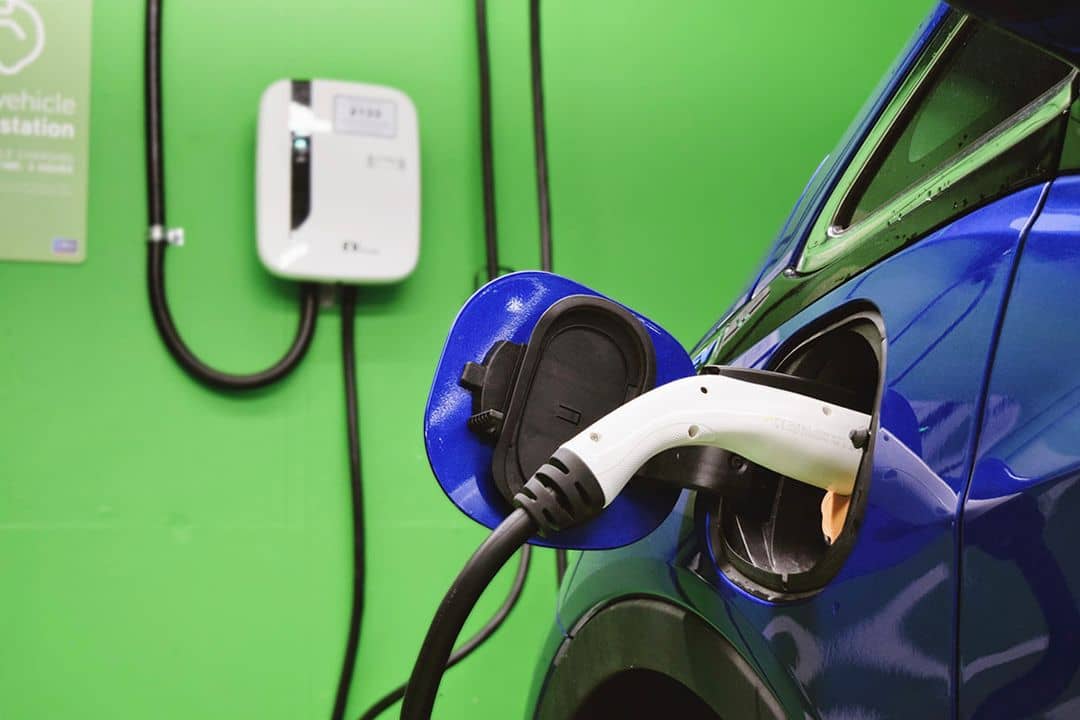Switching from fossil fuel to electric doesn’t mean you won’t need to make a pit stop. Level 2 EV charging stations can make this process familiar and comfortable.
What is a Level 2 EV charging station? This guide will explain how they work, installation costs, and how they compare. Whether you’re creating a charging network or a home charging bay, read on.
A Level 2 charger intelligently charges electric vehicles using an SAE J1772 connection or Tesla’s proprietary cable. The charger’s network is integrated with a utility-style box or pole.

Level 2 chargers use a 240V outlet, providing a greater voltage than a standard 120V plug. This faster charging capability distinguishes them from Level 1 chargers.
Typically, Level 2 charger installation requires a dedicated circuit and a licensed electrician. The installation cost can range from $500 to $1,500, depending on various factors like location and equipment.
Level 2 charging stations are becoming more common in public places, businesses, and homes. They offer a convenient and faster charging solution compared to Level 1 chargers.
A Level 2 charger can deliver AC power to an EV at rates between 3kW and 20kW. This translates to about 30-50km (20-30 miles) of range per hour of charging, and a full battery charge overnight.
Compared to Level 1 chargers, which provide up to 2.4 kW or around 5km (3.1 miles) of range per hour, Level 2 chargers offer faster charging speeds.
Level 2 chargers are popular among businesses as they provide a valuable service for visitors, employees, and tenants. Managing a fleet of Level 2 chargers is easy with the right operating system for EV charging, allowing for network-wide control and user management to optimize revenue.
The cost of a Level 2 charger depends on three factors:
Expect to spend at least $1,000 for the installation of your first Level 2 charger. Subsequent installations will likely cost less after the electrical groundwork is laid.
EV owners have the choice of three common types of charging stations. Let’s compare Level 2 chargers to Level 1 and Level 3.
Level 1 charging stations are included with the purchase of an EV and typically plug into a standard 120V outlet. They provide a maximum of 2.4kW of output, taking several days to fully charge an EV battery.
Compared to Level 2 charging stations, which use a 240V outlet and deliver up to 20kW of power, Level 1 chargers are substantially slower. However, they require no additional electrical work to operate and are substantially cheaper.
Level 1 chargers may be sufficient for commuters who live near their workplace or take infrequent long trips. But for those who need faster charging speeds, Level 2 chargers are a more convenient solution.
Level 3 charging stations, also known as DC fast chargers, deliver between 50kW to 350kW of power, charging an EV battery in as little as 15 minutes. However, they are more expensive to install and require significant electrical infrastructure, making them most practical for installation at dedicated charging destinations along major highways.
In comparison, Level 2 charging stations use a 240V outlet and deliver up to 20kW of power, charging an EV in a few hours. They are more affordable to install and are a more practical choice for businesses looking to add EV charging for places where people are likely to spend several hours.
While Level 3 chargers offer the fastest charging speeds, they are not widely available and are typically reserved for long-distance travel. For daily use, Level 2 chargers provide a convenient and cost-effective charging solution.
Are you interested in learning more about EV charging infrastructure?
[INSERT_ELEMENTOR id=”4162″]